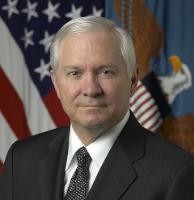Earlier this month, the Pentagon issued a directive (.pdf) raising "irregular warfare" (IW) to the same level of importance as conventional battles. The December 2008 directive defines IW as operations to fight terrorists and insurgents, enhance the defense capacity of foreign governments, and promote stability in conflict-prone regions. It asserts that it is now Department of Defense policy "to recognize that IW is as strategically important as traditional warfare." Although the U.S. armed forces have long performed these tasks, most recently in Afghanistan and Iraq, the military has often done so only with great reluctance. The Pentagon developed considerable expertise in fighting guerrillas during the Vietnam War. When the U.S. military role in the conflict ended, however, senior commanders reverted to their longstanding focus on preparing to win major conventional wars in Europe and Asia. This neglect of low-intensity warfare has contributed to the difficulties the armed forces have experienced in Afghanistan and Iraq in converting initial battlefield victories into enduring political successes.
Global Insights: Gates’ Pentagon War

